What is Affiliate Marketing?
Affiliate marketing is a performance-based marketing model that allows bloggers and website owners to earn commissions by promoting products or services from other companies. When visitors click on an affiliate link and make a purchase, the affiliate (i.e., the blogger or website owner) earns a percentage of the sale. This approach enables businesses to extend their reach and drive sales while providing affiliates with an opportunity to generate passive income.
The Growth of Affiliate Marketing
The popularity of affiliate marketing has surged in recent years, thanks to the global expansion of the internet and the increasing number of people looking for ways to earn money online. Affiliate marketing has become an attractive option for content creators who wish to monetize their blogs or websites while providing value to their audience.
The Benefits of Affiliate Marketing

1. Passive Income
How Affiliate Marketing Generates Passive Income
One of the most significant benefits of affiliate marketing for beginners is the potential to generate passive income. Once you’ve created content featuring affiliate links, you can continue to earn commissions from those links long after the content was initially published. As your content gains more visibility and your audience grows, your passive income potential increases.
Tips for Maximizing Passive Income
To maximize your passive income through affiliate marketing, focus on creating evergreen content that remains relevant over time. Also, invest time in search engine optimization (SEO) to drive organic traffic to your content. Promote your content across social media platforms and engage with your audience to build trust and loyalty, further enhancing your passive income potential.
2. Cost-Effective Business Model
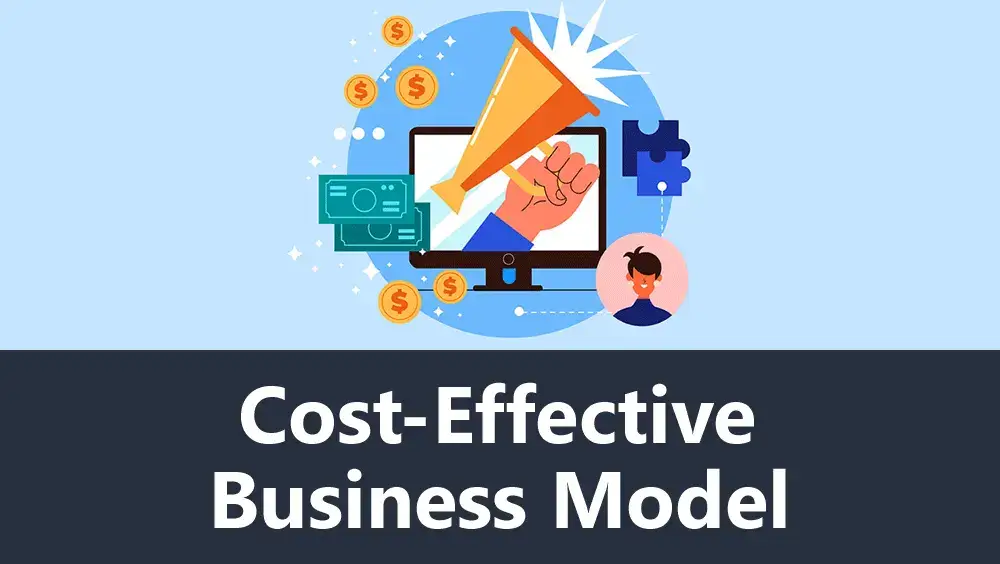
Minimal Upfront Costs
Affiliate marketing success doesn’t require significant upfront costs, making it an attractive option for bloggers and website owners. You don’t need to develop your products or invest in inventory and shipping. All you need is a platform, such as a blog or website, to promote products or services from other companies.
No Inventory or Shipping Concerns
One of the main cost-effective affiliate marketing strategies is to promote digital products, such as software, eBooks, or online courses. With digital products, you don’t need to worry about inventory, storage, or shipping. This approach simplifies the process and allows you to focus on creating content and promoting your affiliate links.
3. Flexibility and Scalability
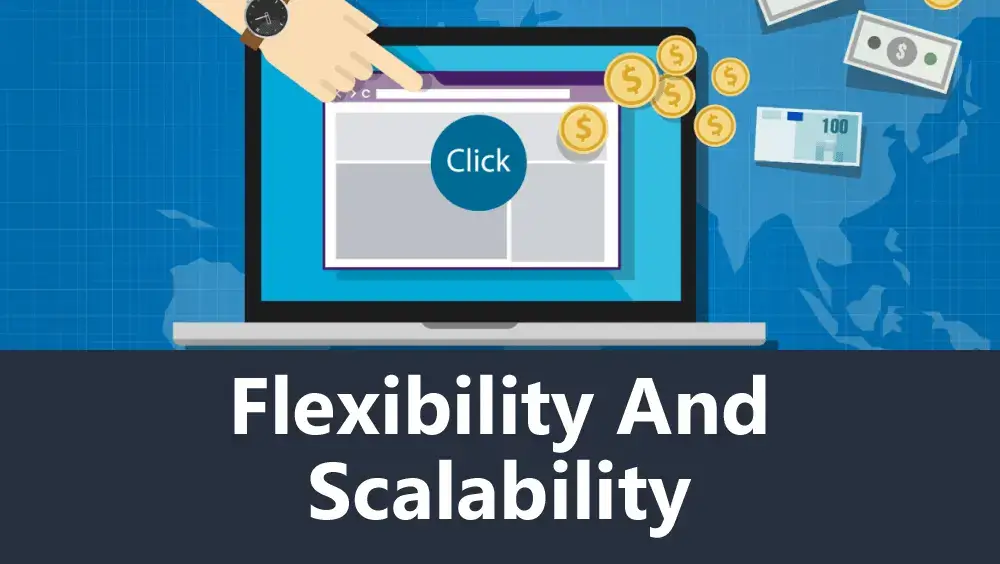
Work from Anywhere
Affiliate marketing allows you to work from anywhere with an internet connection. As a blogger or website owner, you have the freedom to create content, promote products, and engage with your audience from the comfort of your home or while traveling the world.
Grow Your Business on Your Terms
With affiliate marketing, you can scale your business at your own pace. As you gain experience and learn effective affiliate marketing techniques, you can expand your portfolio of affiliate programs and increase your earning potential. The flexibility to choose your working hours and the ability to scale your business make affiliate marketing an attractive option for many content creators.
4. Performance-Based Rewards
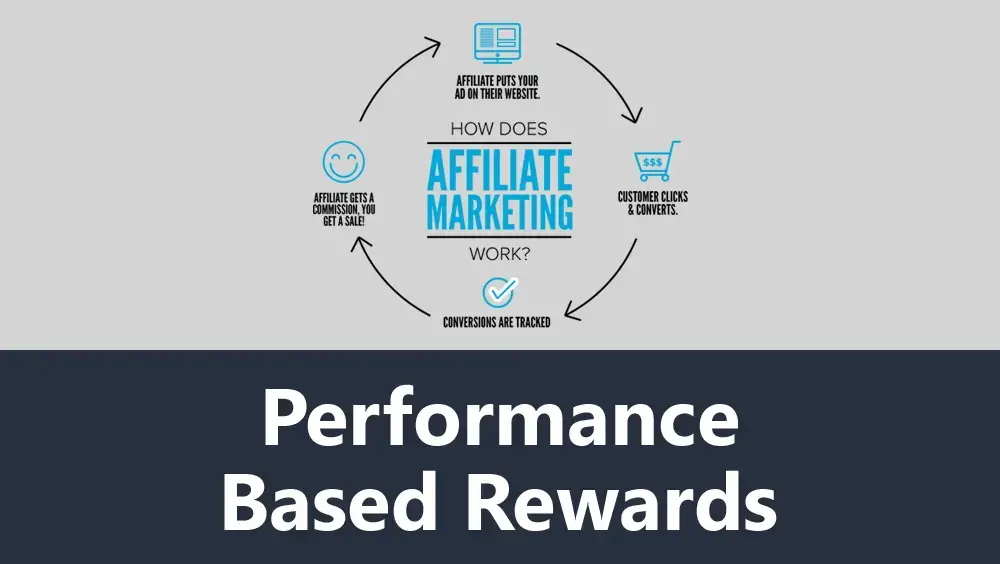
Commission-Based Earnings
Affiliate marketing is a performance-based business model, meaning your earnings are directly tied to your results. The more sales you generate through your affiliate links, the more money you’ll earn. This structure incentivizes affiliates to create high-quality, engaging content that drives conversions and increases their income.
High-Earning Potential
With the right approach, affiliate marketing can be highly lucrative. By selecting high-converting affiliate products and creating engaging content, you can increase your commissions and boost your overall earnings. Many successful affiliates have turned their passion for blogging or website management into a full-time income through affiliate marketing.
5. Diversifying Your Income Sources

Reducing Financial Risk
Affiliate marketing allows you to diversify your income sources, reducing your financial risk. By partnering with multiple affiliate programs, you can create multiple streams of income. This diversification helps protect your earnings in the event that one of your affiliate partnerships underperforms or ends.
Combining Multiple Affiliate Programs
To successfully diversify your affiliate marketing income, research and join various affiliate programs within your niche. Promote a mix of products and services that cater to different audience segments and needs. This approach will enable you to tap into various revenue streams while providing valuable content to your audience.
6. Enhancing Your Brand and Content

Partnering with Reputable Companies
When you collaborate with well-known and reputable companies through affiliate marketing, you not only earn commissions but also enhance your brand’s credibility. By aligning yourself with respected brands, you demonstrate to your audience that you’re a trusted source of information and recommendations.

Providing Relevant and Valuable Recommendations
To further enhance your brand and content, focus on promoting products and services that are genuinely relevant and valuable to your audience. By doing so, you’ll establish yourself as an authority in your niche and create a loyal following of readers who trust your recommendations.
7. Building Trust with Your Audience

Transparency and Authenticity
Building trust with affiliate marketing involves being transparent and authentic with your audience. Disclose your affiliate partnerships and provide honest reviews of the products or services you’re promoting. By being open and genuine, you’ll foster a sense of trust with your audience, which can lead to higher engagement and conversion rates.
Long-Term Loyalty and Engagement
Establishing trust with your audience is essential for long-term loyalty and engagement. When readers know they can rely on your recommendations, they’re more likely to return to your blog or website for information and advice. This long-term engagement can lead to increased traffic, higher conversion rates, and more consistent affiliate marketing revenue.
8. Low Barrier to Entry

No Need for Expertise or Credentials
One of the advantages of affiliate marketing for beginners is the low barrier to entry. You don’t need formal expertise or credentials to get started; all you need is a platform to share your content and the willingness to learn and grow. Many successful affiliates have learned the ropes through trial and error, online resources, and connecting with other affiliates.
Easy-to-Implement Marketing Strategies
Affiliate marketing doesn’t require advanced technical skills or marketing knowledge. With easy-to-implement marketing strategies, such as content creation, social media promotion, and email marketing, even beginners can start earning through affiliate marketing.
9. Access to Support and Training
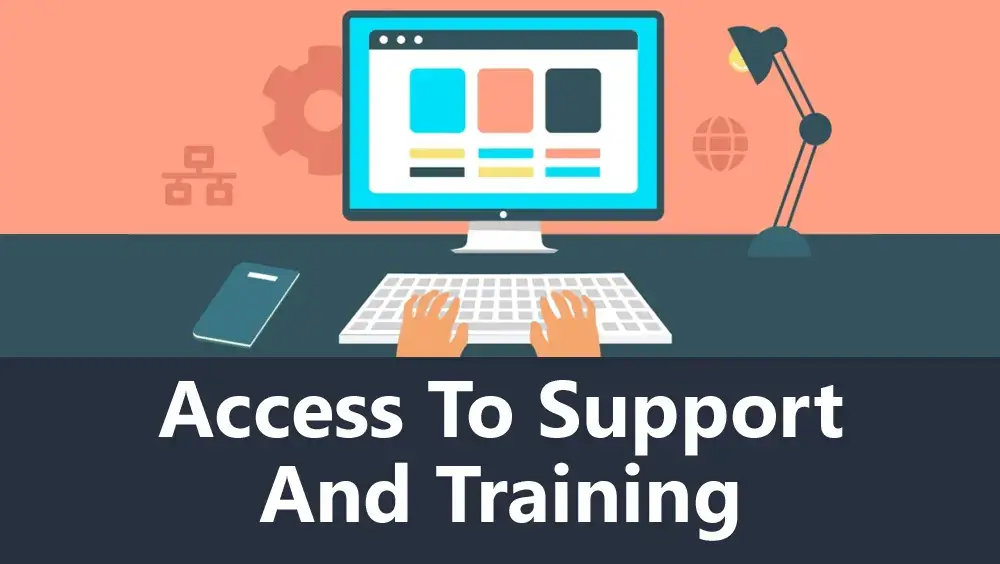
Affiliate Networks and Communities
Many affiliate networks and programs offer support and training resources to help you succeed. These resources may include webinars, articles, and online courses covering topics like effective affiliate marketing techniques, SEO, and content creation. Additionally, online communities and forums provide opportunities to connect with other affiliates, share experiences, and learn from one another.
Ongoing Learning Opportunities
As the affiliate marketing landscape continues to evolve, it’s essential to stay up-to-date with the latest trends, tools, and best practices. Continuous learning will help you adapt your strategies, optimize your content, and increase your affiliate marketing revenue over time.
10. Global Reach and Opportunities

Expanding Your Audience
The internet enables you to reach a global audience with your content, opening up endless opportunities for affiliate marketing. By promoting products and services with worldwide appeal or targeting specific geographic regions, you can tap into new markets and grow your audience.
Promoting Products Worldwide
As an affiliate marketer, you’re not limited to promoting products or services within your own country. Many affiliate programs cater to international markets, allowing you to promote products and services worldwide. This global reach presents an opportunity to earn commissions from customers across the globe and increase your overall revenue.
Tips for Successful Affiliate Marketing
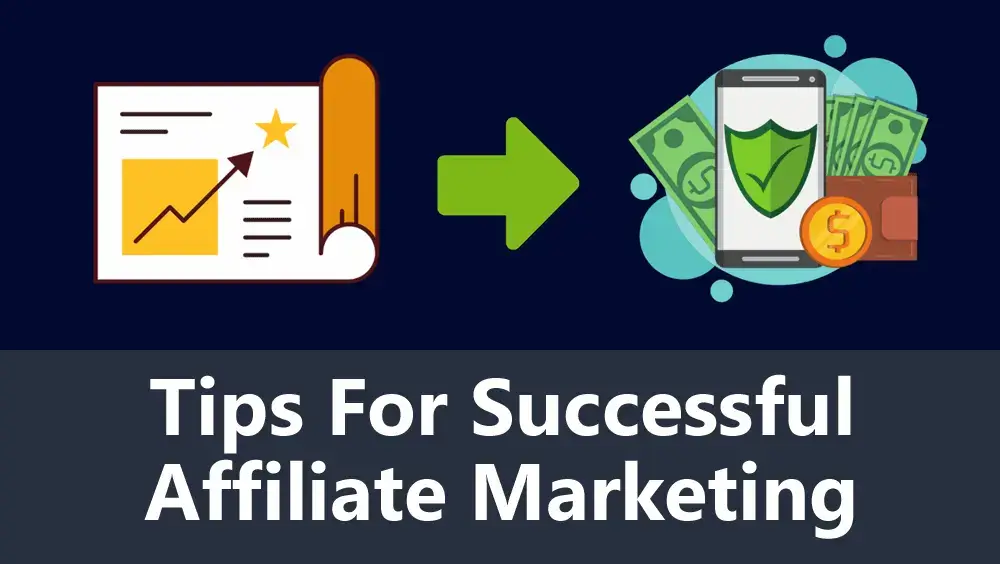
Selecting the Right Affiliate Programs
To achieve affiliate marketing success, it’s crucial to choose the right affiliate programs for your niche. Research various programs and consider factors such as commission rates, payment terms, and the reputation of the company. Select programs that align with your audience’s interests and needs, and promote products and services that you genuinely believe in.
Creating Engaging and Informative Content
High-quality, engaging content is the backbone of successful affiliate marketing. Focus on creating informative blog posts, product reviews, and tutorials that provide value to your readers. Use your content to address your audience’s pain points, answer their questions, and offer solutions through your affiliate product recommendations.
Building and Maintaining Relationships with Affiliate Partners
Developing strong relationships with your affiliate partners is essential for long-term success. Communicate regularly with your affiliate managers, provide feedback on the products you’re promoting, and stay updated on the latest promotions and offers. Building a rapport with your partners can lead to better support, exclusive deals, and opportunities for higher commissions.
Potential Challenges and Pitfalls

Staying Compliant with Legal Requirements
As an affiliate marketer, it’s crucial to stay compliant with legal requirements in your region, such as disclosing your affiliate partnerships and adhering to advertising regulations. Failure to comply with these requirements can result in penalties, fines, or even the termination of your affiliate partnerships.
Managing Expectations and Avoiding Burnout
Affiliate marketing can be rewarding, but it’s essential to manage your expectations and avoid burnout. Success in affiliate marketing takes time, effort, and patience. Set realistic goals for yourself and remember that building a successful affiliate marketing business is a marathon, not a sprint.
Embracing the benefits of affiliate marketing can lead to increased revenue, greater flexibility, and enhanced brand credibility for bloggers and website owners. By selecting the right affiliate programs, creating engaging content, and building trust with your audience, you can turn your passion for content creation into a thriving affiliate marketing business.

As a beginner exploring the world of affiliate marketing, it’s essential to understand the numerous benefits this business model can offer.
Here are the main points and descriptions of the article, which outlines the advantages and tips for successful affiliate marketing:
- Passive income generation: Affiliate marketing allows you to earn money even when you’re not actively working, as your content continues to generate revenue through affiliate links over time. To maximize passive income, focus on creating evergreen content and optimizing it for search engines.
- Cost-effective business model: With minimal upfront costs and no need to manage inventory or shipping, affiliate marketing is an attractive and cost-effective option for bloggers and website owners.
- Flexibility and scalability: Affiliate marketing offers the freedom to work from anywhere and scale your business at your own pace, making it a popular choice for content creators.
- Performance-based rewards: Earnings in affiliate marketing are tied to your results, incentivizing you to create high-quality, engaging content that drives conversions and increases your income.
- Diversifying income sources: By partnering with multiple affiliate programs, you can create multiple streams of income, reducing your financial risk and ensuring stability in your earnings.
- Enhancing brand and content: Collaborating with reputable companies and promoting relevant, valuable products and services can improve your brand’s credibility and provide value to your audience.
- Building trust with the audience: By being transparent, authentic, and providing honest reviews, you can foster trust with your audience, leading to higher engagement and conversion rates.
- Low barrier to entry: Affiliate marketing doesn’t require formal expertise or credentials, making it accessible for beginners who are willing to learn and grow.
- Access to support and training: Many affiliate networks and programs offer resources and training to help you succeed in your affiliate marketing journey, while online communities and forums provide opportunities to connect with other affiliates.
- Global reach and opportunities: The internet enables you to reach a global audience with your content and promote products and services worldwide, opening up endless opportunities for affiliate marketing.
To achieve success in affiliate marketing, focus on selecting the right affiliate programs, creating engaging and informative content, and building strong relationships with your affiliate partners.
Be prepared to face potential challenges, such as staying compliant with legal requirements and managing expectations to avoid burnout. By embracing the benefits of affiliate marketing, you can turn your passion for content creation into a thriving online business.

An action plan based on the article about the benefits of affiliate marketing for bloggers and website owners:
1. Research and select affiliate programs: Start by researching various affiliate programs within your niche. Consider factors such as commission rates, payment terms, and the reputation of the company. Choose programs that align with your audience’s interests and needs.
2. Set up your blog or website: If you haven’t already, create a blog or website focused on your niche. Ensure it has a user-friendly design, easy navigation, and a clear call-to-action for visitors.
3. Develop high-quality content: Create engaging and informative content that provides value to your audience. Focus on blog posts, product reviews, and tutorials that address your audience’s pain points and offer solutions through your affiliate product recommendations.
4. Optimize your content for SEO: Implement search engine optimization (SEO) techniques, such as keyword research and on-page optimization, to help drive organic traffic to your content.
5. Promote your content: Share your content across various platforms, including social media, email marketing, and online forums, to increase visibility and drive traffic to your blog or website.
6. Track and analyze your performance: Monitor your affiliate marketing performance using analytics tools provided by your affiliate networks or programs. Analyze your data to identify what’s working and areas for improvement.
7. Build and maintain relationships with affiliate partners: Communicate regularly with your affiliate managers and maintain strong relationships with your affiliate partners. This can lead to better support, exclusive deals, and opportunities for higher commissions.
8. Continuously learn and adapt: Stay up-to-date with the latest trends, tools, and best practices in affiliate marketing. Utilize online resources, training materials, and communities to continuously improve your skills and strategies.
9. Diversify your affiliate partnerships: As you gain experience, consider diversifying your affiliate partnerships by joining additional programs or promoting a wider range of products and services.
10. Evaluate and adjust your strategies: Regularly evaluate your affiliate marketing strategies and make adjustments as needed to maximize your revenue and reach.
By following this action plan, you can effectively leverage the benefits of affiliate marketing, build a successful online business, and generate passive income through your blog or website.

As a beginner delving into the world of affiliate marketing, you may have several questions.
Here are 10 great frequently asked questions with answers to help you better understand this business model:
1. What is affiliate marketing?
Answer: Affiliate marketing is a performance-based marketing model where a blogger or website owner promotes a company’s products or services and earns a commission for each sale or action (e.g., click, lead) generated through their unique affiliate links.
2. How do I start affiliate marketing as a beginner?
Answer: To start affiliate marketing, choose a niche, set up a blog or website, research and join affiliate programs, create high-quality content featuring your affiliate links, and promote your content to drive traffic and conversions.
3. How much money can I make with affiliate marketing?
Answer: The amount of money you can make with affiliate marketing varies depending on factors such as your niche, audience size, content quality, and promotional strategies. Some affiliates earn a few hundred dollars per month, while others make thousands or even millions annually.
4. How long does it take to see results in affiliate marketing?
Answer: The time it takes to see results in affiliate marketing varies for each individual. It depends on factors such as your niche, content quality, promotional efforts, and the competitiveness of your market. Generally, it may take several months to a year or more to see significant results.
5. Do I need a website or blog to start affiliate marketing?
Answer: While having a website or blog is the most common way to start affiliate marketing, it’s not the only option. You can also promote affiliate products through social media platforms, email marketing, and online forums, among others. However, a website or blog provides more control and opportunities for long-term growth.
6. What types of products or services can I promote through affiliate marketing?
Answer: You can promote a wide range of products and services through affiliate marketing, including physical products, digital products, software, online courses, and subscription services. Choose products and services that align with your niche and audience’s interests.
7. How do I find the right affiliate programs for my niche?
Answer: To find the right affiliate programs, research various programs within your niche, and consider factors such as commission rates, payment terms, and the reputation of the company. You can also join affiliate networks, which provide access to multiple affiliate programs in one place.
8. How do I drive traffic to my affiliate marketing content?
Answer: To drive traffic to your affiliate marketing content, focus on SEO, social media promotion, email marketing, guest posting, and online forums. Experiment with different traffic generation strategies to find what works best for your niche and audience.
9. What are some common mistakes to avoid in affiliate marketing?
Answer: Common mistakes to avoid in affiliate marketing include promoting low-quality or irrelevant products, not disclosing affiliate partnerships, focusing solely on sales rather than providing value, and not tracking or analyzing performance data.
10. Do I need any special skills or experience to succeed in affiliate marketing?
Answer: While no specific skills or experience are required to start affiliate marketing, having knowledge of content creation, SEO, and marketing strategies can be beneficial. Most successful affiliates learn through trial and error, online resources, and connecting with other affiliates in their niche.
Conclusion
In summary, affiliate marketing offers a wealth of benefits for bloggers and website owners, including the potential for passive income generation, cost-effective business operations, flexibility, scalability, and diversified revenue streams. By selecting the right affiliate programs, creating high-quality and engaging content, and building trust with your audience, you can leverage these advantages to create a thriving online business.
As a beginner venturing into the world of affiliate marketing, it’s essential to remain patient and committed to continuous learning and improvement. Start by researching your niche, setting up your website, and joining relevant affiliate programs. Develop and promote valuable content, track your performance, and adjust your strategies as needed.
Now is the time to take action and embark on your affiliate marketing journey. By following the tips and guidelines outlined in this article, you can transform your passion for content creation into a successful and sustainable source of income. Remember, success in affiliate marketing requires time, effort, and persistence. Stay focused, be consistent, and believe in your potential to achieve your goals.



